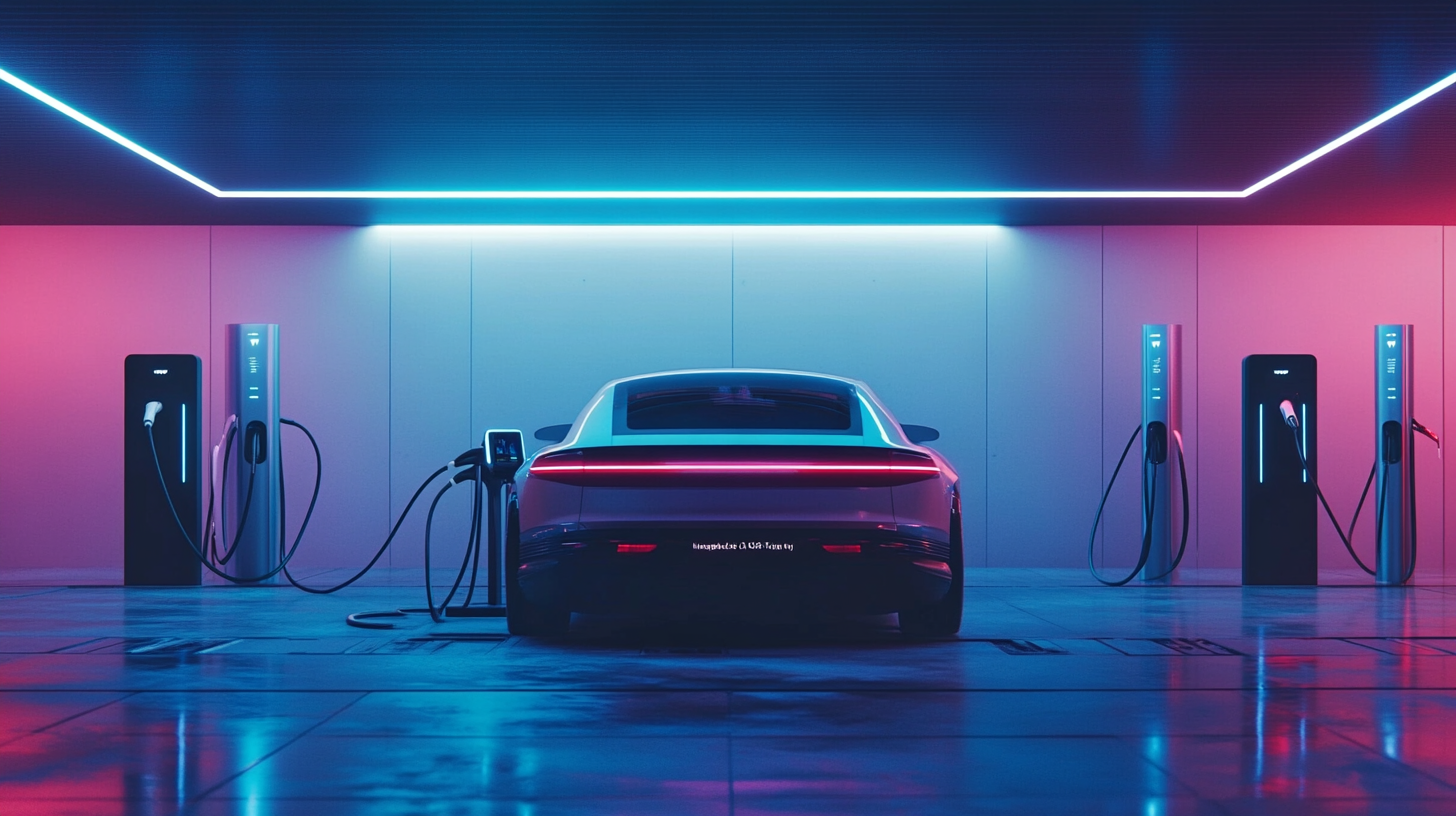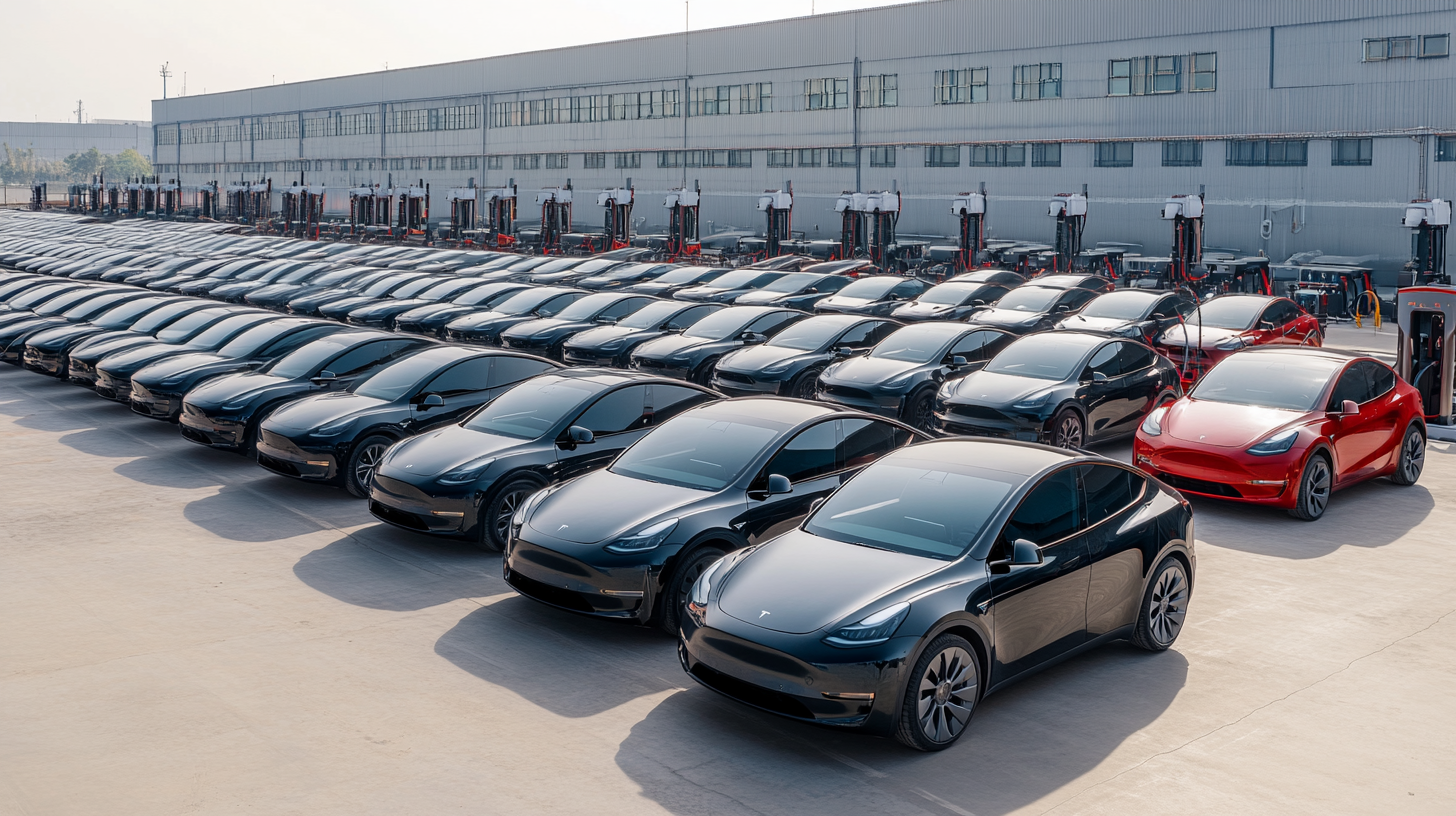The electric vehicle (EV) market is experiencing exponential growth, with global sales projected to exceed 10 million units annually by 2025, according to a report from the International Energy Agency (IEA). This surge is not only transforming the automotive landscape but is also catalyzing advancements in EV charging infrastructure. As the demand for efficient and reliable charging solutions escalates, the role of EV charging equipment manufacturers becomes pivotal in shaping a robust global supply chain.
In an era where sustainable transport is becoming a priority for governments and consumers alike, the innovation and scalability brought forth by leading EV charging equipment manufacturers are crucial. With the global EV charging market expected to reach $47.20 billion by 2028, as indicated by a recent report from Allied Market Research, understanding the key players and trends driving this sector is essential. This blog will delve into the top trends and insights surrounding these manufacturers, exploring how their strategies are not only meeting current demands but also forecasting future needs in the dynamic landscape of electric mobility.

The rise of electric vehicle (EV) charging infrastructure is transforming the global automotive landscape, underscoring the critical role that charging networks play in the adoption of electric vehicles. As consumer sentiment evolves, driven by increased awareness and the necessity for convenient charging solutions, manufacturers and service providers are refining their strategies to meet burgeoning demand. Recent surveys indicate that positive consumer attitudes towards EV charging correlate with market growth, highlighting the importance of infrastructure development in enhancing user experience. China stands at the forefront of this transformation, with its extensive charging infrastructure and robust government incentives driving the dynamic growth of the EV market. The country’s ambitious plans for expansion and modernization of its charging networks signal a commitment to fostering a sustainable transportation ecosystem. This rapid development is not only pivotal for domestic consumption but also sets a precedent for other nations looking to boost their electric vehicle adoption rates. Globally, the electric vehicle charging infrastructure market is projected to witness explosive growth, potentially reaching USD 452.2 billion by 2030. With major investments pouring into the sector, stakeholders are tasked with strategic planning to ensure efficient and widespread charging solutions. As the demand for charging stations escalates, manufacturers are innovating to create more accessible and user-friendly products, thus propelling the shift towards electric mobility. The future of transportation hinges on the synergy between electric vehicles and their supporting infrastructure, making it imperative for industry leaders to stay ahead in this fast-evolving landscape.

The electric vehicle (EV) charging equipment market is witnessing unprecedented growth, driven by key players who are reshaping global supply chains. According to a study by Custom Market Insights, the global EV charging station market is projected to reach an impressive valuation of nearly $49.55 billion by 2024, highlighting the rapid adoption of electric vehicles and the essential infrastructure needed to support them. Central to this transformation are innovative manufacturers who are leading the charge in technological advancements and market expansion.
Leading companies in the EV charging space are not only focusing on traditional charging solutions but are also venturing into solar-powered charging stations. This shift aligns with the growing demand for sustainable energy sources and positions these innovators as frontrunners in the power industry. Recent developments indicate that the EV charging market could see further robust growth, with estimates suggesting it may attain a staggering value of over $33 billion by 2050.
Companies that dominate the EV charging sector are responding to the surge in EV sales by enhancing their charging networks, optimizing user experience, and investing heavily in research and development. Innovations are crucial, as they not only cater to the immediate needs of EV owners but also pave the way for a more convenient and accessible EV ecosystem, addressing challenges ranging from charging speed to efficiency. As these market leaders continue to push the boundaries of technology, their impact will be felt across the globe, propelling the entire EV ecosystem forward.

The electric vehicle (EV) charging equipment market is experiencing significant growth, driven by the rapid adoption of EVs worldwide. However, producers of charging equipment face a variety of challenges that complicate their role within the global supply chain. One of the primary difficulties is the volatility of raw material prices. As the demand for metals like copper and lithium surges—critical components in charging infrastructure—their costs can fluctuate dramatically, impacting production budgets and pricing strategies.
Additionally, manufacturers are contending with supply chain disruptions caused by geopolitical tensions and the lingering effects of the COVID-19 pandemic. These disruptions can result in delays in component availability, leading to longer lead times and increased competition among manufacturers. This scenario forces many companies to reassess their supply chain strategies, investing in local sourcing and diversifying suppliers to mitigate risks associated with dependence on specific regions.
Another significant challenge is the need for innovation in response to regulatory changes and consumer expectations. As governments increasingly mandate higher standards for EV infrastructure, equipment producers must stay ahead of technological advancements. This requires not only investment in research and development but also a keen understanding of market trends and consumer preferences. Balancing these demands while maintaining cost efficiency proves to be a complex task for manufacturers striving to lead in this competitive market.

The electrical vehicle (EV) charging infrastructure is undergoing a significant transformation, fueled by technological advancements that are reshaping the landscape of EV charging solutions. According to a recent report by the International Energy Agency (IEA), global EV sales surged to over 6.6 million units in 2021, an increase of 108% from the previous year. This skyrocketing demand has prompted manufacturers to innovate and enhance the efficiency and accessibility of charging stations, with focus areas including faster charging capabilities, smart grid integration, and sustainability in materials used.
One of the most significant trends in the EV charging sector is the rise of ultra-fast charging technology. By utilizing high-capacity chargers, manufacturers can reduce charging times to under 30 minutes, which is essential in encouraging EV adoption. A study by BloombergNEF indicates that the installation of ultra-fast chargers is projected to see a compound annual growth rate (CAGR) of 40% through 2025, highlighting the urgency for manufacturing leaders to invest in this technology. Additionally, advancements in wireless charging are also emerging as a viable solution, potentially allowing for seamless charging experiences without traditional cables.
Moreover, the integration of IoT (Internet of Things) and AI (Artificial Intelligence) in charging stations is paving the way for smarter charging solutions. These technologies enable real-time data analytics to optimize charging schedules based on grid demand, thus reducing energy costs and improving grid stability. According to a report by Grand View Research, the global smart EV charging market is expected to expand at a CAGR of 38.2% from 2022 to 2030, emphasizing the role of technology in enhancing the efficiency of EV charging networks. As manufacturers continue to embrace these innovations, the future of EV charging solutions appears not only promising but also essential for sustainable transportation.
Sustainability is becoming a cornerstone of manufacturing within the electric vehicle (EV) charging equipment sector. As the demand for eco-friendly solutions in transportation rises, leading manufacturers are redefining their production processes to align with sustainability goals. This shift is evident as companies implement innovations that minimize waste, enhance resource efficiency, and incorporate recycled materials into their product lines. The automotive industry is increasingly recognizing the importance of sustainable practices, driving a significant transformation in supply chain dynamics.
The transition towards sustainable manufacturing is not merely a trend; it represents a critical adjustment needed to meet global sustainability targets. Many European manufacturers are leading this charge, working diligently towards net-zero and circular economy principles. Enhancements in logistics, such as the introduction of fully electric vehicles for transporting components, showcase how manufacturers are leveraging green technologies to reduce their carbon footprints during production. This approach not only addresses environmental concerns but also aligns with the growing consumer demand for responsibly produced goods.
Additionally, the commitment to eco-friendly manufacturing practices is reflected in collaborative partnerships aimed at pioneering sustainable materials. By focusing on innovative alloys and recycling initiatives, manufacturers are reshaping the automotive landscape to foster a distinctively greener future. These changes in production ideology underscore the industry's broader move towards sustainability, setting a precedent for how manufacturing can evolve in a way that reconciles economic feasibility with environmental responsibility.
